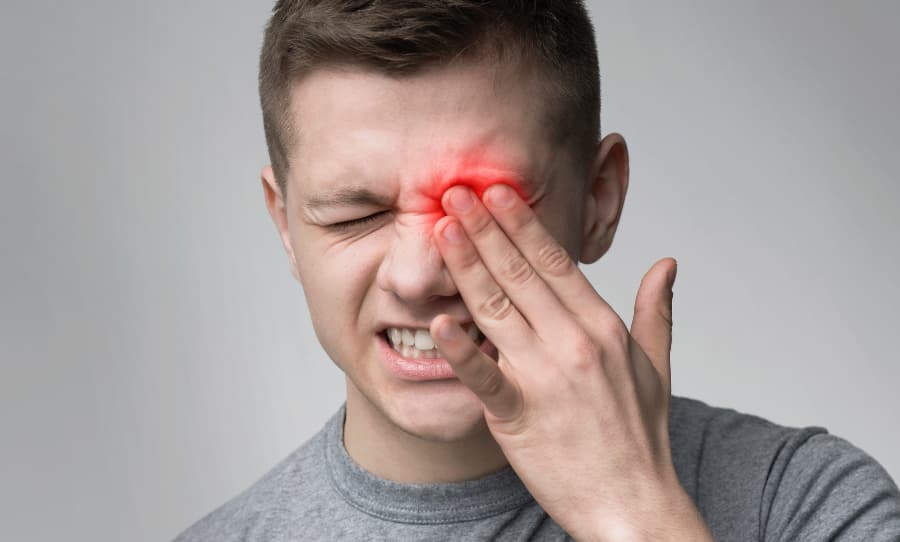What Is Visual Perception Testing?
When you think of vision, you most likely picture visual acuity, like having 20/20 vision. However, the entire process is more complicated. Vision is a combination of how well we see, how our eyes work, and how our brains interpret and understand what we see. Visual processing disorders cause you to process information incorrectly.
At Savedoff, Ciccone & Davis, Doctors of Optometry, P.C., in Syracuse and Manlius, NY, we focus on the entire vision system, not just your eyes. We offer visual perception testing to help diagnose and treat your vision problems, including ocular diseases. Here, we discuss what visual perception tests are and how we treat visual processing disorder.
An Overview of Visual Processing Disorder
Visual Processing Disorder greatly differs from vision acuity problems. Visual acuity refers to the sharpness and clarity of your eyesight and can be corrected with optical solutions or contact lenses. While you can develop strategies to overcome some of the challenges of Visual Processing Disorder, you cannot outgrow it.
This disorder creates difficulties in understanding or interpreting information, movement, form, direction, and spatial relationships. You may have perfect 20/20 vision and still have problems deciphering information. Instead of having blurry vision, words and numbers may seem like a foreign language.
Most often, teachers and parents notice signs of a processing disorder during the learning process. Individuals with this disorder take more time to learn how to read, read more slowly, and usually have below-grade-level comprehension.
Who Benefits From Visual Perception Testing?
Children should undergo testing if they show signs of struggling to learn from visual material. These signs and symptoms include:
- Difficulty matching objects and pictures
- Difficulty finishing timed work
- Difficulty noticing small differences or distinguishing words with similar spellings
- Difficulty visualizing stories or relationships between numbers
- Difficulty with sight words or memorization
- Poor penmanship, uphill and downhill writing
- Difficulty catching or hitting a ball
- Difficulty copying down notes
- Frequent loss of place reading, using a finger to keep place
- Becoming overwhelmed by too many visual stimuli
Adults who suffer a brain injury should also undergo a Visual Processing Assessment. Visual deficits and longer processing speeds are common results of a significant injury and can make visual experiences challenging as people transition to normal life.
Why an Assessment Is Necessary
Visual Processing Disorder can have several types of deficits. Most routine eye exams or school vision screenings do not test these deficits, which can lead to visual processing disorders going undiagnosed.
During an assessment, one of our experienced eye doctors will perform research-based and age-appropriate testing to identify how you see and process information. This testing allows our team to find any deficits in your vision system. Once we have identified where your “crossed wires” are, we can create a treatment plan and start vision therapy.
Visual Processing Examinations
A Visual Processing Examination evaluates several visual skills.
- Visual-motor integration: Your ability to match fine movement with visual input, including your ability to write letters or take notes during class.
- Visualization: Your ability to form mental images and manipulate detail in your brain.
- Visual sequential memory: Can you remember words or objects in order? Do you mistake “was” for “saw?”
- Spatial relations: Can you understand how two or more objects relate to each other? Do you understand that five is less than seven?
- Spatial orientation: Can you identify which direction an object is facing? Do you often mistake “b” and “d?”
- Visual closure: Can you complete a picture in your mind when given only partial information?
- Visual discrimination: Can you distinguish between similar-looking shapes, words, or objects?
Professional Vision Therapy in Syracuse and Manlius, NY
If you struggle with visual perception or learning, vision therapy may improve your reading skills. Our doctors can help train your brain and improve your visual accuracy. Research indicates vision therapy can help correct visual deficits that contribute to learning and reading disorders. Our therapy is suitable for anyone who wants to improve their focusing, fixation, and eye teaming skills. Children, especially, can benefit from this therapy.
Visual processing disorders can cause children to fall behind in school. This lag can lead to social and academic difficulties. Vision therapy does not teach children how to read. It can, however, help eliminate deficits in visual skills that impact learning delays.
It is important to note that visual processing disorders can mimic certain learning disabilities such as dyslexia and dyspraxia. Proper visual perception testing can help determine whether you or your child has a learning disability or a processing disorder.
Schedule an Appointment With Experienced Vision Doctors
At Savedoff, Ciccone & Davis, Doctors of Optometry, P.C., we focus on the whole vision system, not only on the eyes. While deficits in your visual perception cannot be cured, you can develop methods and strategies to help you compensate. Additionally, with proper therapy, your perception can be trained and strengthened.
If you think you or a loved one has Visual Processing Disorder, our board-certified eye doctors can perform a visual perception test. To learn more about this test or our other comprehensive vision services in Syracuse or Manlius, NY, contact us today.



